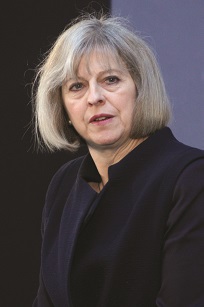News / Providers’ continued concern about MH funding shortfall
Prime minister Theresa May has launched a new funding package for mental health, but providers have insisted they are not receiving funding at required levels. 
An HFMA survey showed that while funding will increase in 2017/18 for some trusts, only a minority will receive increases big enough to achieve the investment standard. Increasing investment in mental health has been included in NHS England’s mandate since 2014/15 – so-called parity of esteem for mental health. Under this investment standard, commissioners are required to increase mental health funding each year at a level that at least matches the rise in their overall allocation.
The HFMA survey received responses from 36 of the nearly 60 mental health trusts in England and, while funding increased in 30 (83% of respondents) in 2016/17, this falls to 21 (58%) in 2017/18.
For providers in the sample seeing an increase in funding, the investment standard was met in nine trusts in 2016/17; eight in 2017/18. The HFMA said the survey showed a ‘lack of alignment’ between commissioners and mental health providers on implementing the investment standard, with confusion over which services are covered and how much investment should be made.
In a separate survey, NHS Providers said the investment standard would be missed in nearly two-thirds of 38 mental health trust respondents over the next two years. They said the shortfall was a result of clinical commissioning groups giving funding priority to acute hospitals.
Its director of policy and strategy, Saffron Cordery, said: ‘The survey findings suggest that in trying to conclude new contracts both commissioners and providers face significant pressures. Many commissioners want to increase funding for mental health but – amid other pressures – they lack the funding to see it through.’
In January, Mrs May (pictured) unveiled a comprehensive package of reform to ensure better mental health support for people of all ages, particularly children and young people. Under the plan, more than £80m will be invested in mental health services in England.
She said that almost £68m would be spent on speeding up the delivery of a digital mental health package. This will allow people to check symptoms and, if needed, access digital therapy immediately, rather than waiting for a face-to-face appointment. A further £15m will be invested in creating new places of safety – a similar investment has already created 88 places. Training will be provided to secondary schools and there will be a review of children and adolescent mental health services.
Mrs May said true parity for mental and physical health can only be achieved if every institution recognises the vital role it can play in delivering this objective.
‘This is an historic opportunity to right a wrong, and give people deserving of compassion and support the attention and treatment they deserve. And for all of us to change the way we view mental illness so that striving to improve mental wellbeing is seen as just as natural, positive and good as striving to improve our physical wellbeing.’
NHS Confederation mental health network chief executive Sean Duggan welcomed the plan. But he added: ‘Mental health services still need the government’s support to speed-up promised funding, much of which is delayed, but we are very pleased that mental health is being accepted as a major priority going forward.’Related content
We are excited to bring you a fun packed Eastern Branch Conference in 2025 over three days.
This event is for those that will benefit from an overview of costing in the NHS or those new to costing and will cover why we cost and the processes.